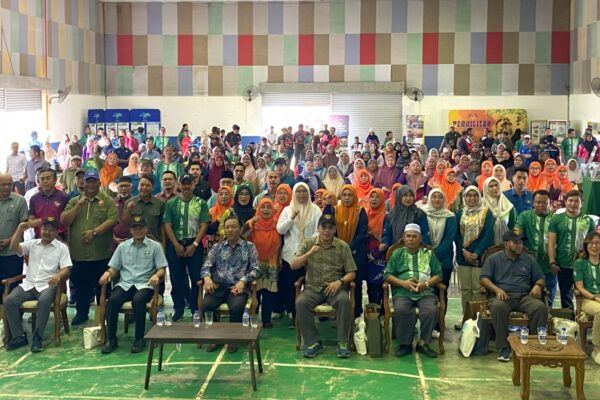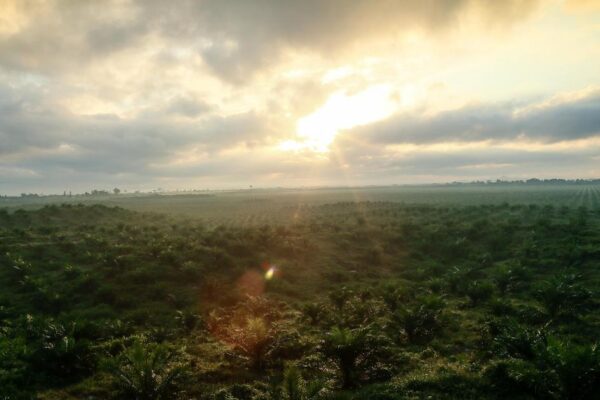If you’ve ever looked at a sheet of paper and wondered how it was made and where it came from, you’ve already started to think about its supply chain.
This is where the work starts for companies who’ve committed to pulp and paper production free from deforestation and social exploitation. Our members, 3M (maker of Post-It Notes) Nestlé and Mars, who use paper and cardboard to package their treats, are on this journey into the unknown.
These companies are several tiers removed from the forest level, where trees are cut and then turned into pulp to be made into paper. It can be tricky, time-consuming work for companies to wade through levels of complexity – from its suppliers, to its suppliers’ suppliers, their suppliers and beyond; however, this work is necessary in order to have an impact.
Forest products from around the world
Pulp and paper is a global industry – a company might be buying its boxes or packaging paper in the US, but the forest that it came from could be anywhere across the globe – Poland, Brazil, China, Canada maybe. Making the links from the finished goods to the forest and all the steps in between can involve a number of different stakeholders and countries.
Nestlé was one of the first brands to begin mapping its pulp and paper supply chain. TFT worked with Nestlé to identify its forest sources in Thailand, Vietnam, Central and West Africa, as well as Chile, Japan, and Mexico. Together we have amassed a huge amount of data,
capturing the links between Nestlé’s packaging and its forest origins around the world.

Lack of transparency
Most companies don’t have information about their supply chain past the suppliers they directly buy from. And many companies don’t want to share the information they do have. It can take a lot of relationship building to reassure a supplier they’re not giving away trade secrets by sharing who they’re buying from – they’re helping to transform the industry.
In 2016 Mars and TFT worked together to host seven regional workshops to introduce Mars’ responsible fibre sourcing policy. Through these workshops and a series of conference calls, Mars engaged 100% of their packaging suppliers, and in our first year of work together Mars was able to reach 93% traceability to the paper mill level, and 90% traceability to country of fibre harvest.
Lack of awareness or understanding
Consumer-facing companies like Mars or Nestlé have customers and NGO stakeholders who will consistently remind them of deforestation and social issues to tackle. Producer companies who own forest land, or are buying directly from landowners, often feel the heat from NGOs as well. It’s a different story for the companies in the middle of the supply chain. These are slightly more anonymous companies that don’t feel the same external pressure and therefore often aren’t as aware of issues around forest conservation or social exploitation.
Without this awareness, they sometimes lack the will or capacity to change. These companies are important links to the producers upstream, and without their cooperation, we can’t get very far. One way 3M tackles this challenge is inviting intermediary suppliers along to assessments at the forest level. By doing this, the visit is not only an opportunity to understand a supplier’s practices on the ground and identify room for improvement, it’s also an educational experience for a midstream supplier that helps to bring them along in the journey.
Leverage – money talks
Brands can ask a lot of their suppliers, and the suppliers will usually agree to it. After all, the customer is always right. The challenge arises when you are no longer talking to a direct supplier, but to a company several tiers upstream that feels no accountability to a brand and its no deforestation commitment. With every step closer to the forest in the supply chain, a brand loses a bit more of its leverage.
These challenges don’t change our members’ accountability or their desire to drive transformation. We act as a guiding partner to members as they navigate through these challenges in their supply chains. We help them have tough conversations with their direct suppliers and the companies all the way upstream to the forest level. With complex, global supply chains an important part of the work is to identify priority areas that require attention first. Drawing on our staff based in countries of production all over the world, we highlights issues in key regions where our members’ support and intervention is most urgently needed.
Getting on the ground in these instances is the best way to make change, so TFT’s field staff visits company operations and their source forests to assess their operations and directly help suppliers take steps to establish good practices for nature and people. The end goal is a transparent, engaged supply chain, and companies within it acting upon their values and taking steps towards responsible practices. It’s not a quick or easy journey, but it’s a powerful one with the potential for industry-wide transformation at a time that it’s desperately needed.


